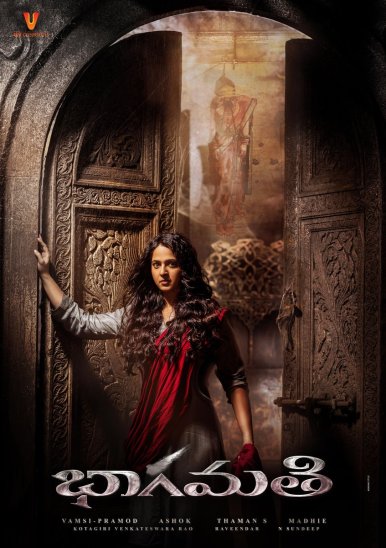 Ira is billed as a thriller but unfortunately it rarely manages to elicit any suspense or excitement as it plods through an investigation into the murder of a politician accused of corruption. All the elements are there, but the execution is clunky with the sort of dialogue where the characters carefully explain to each other exactly what they are doing and why. Unni Mukundan is good as the main lead, but the rest of the cast get little opportunity to make an impression while director SS Saiju seems to have let the film take its own meandering course.
Ira is billed as a thriller but unfortunately it rarely manages to elicit any suspense or excitement as it plods through an investigation into the murder of a politician accused of corruption. All the elements are there, but the execution is clunky with the sort of dialogue where the characters carefully explain to each other exactly what they are doing and why. Unni Mukundan is good as the main lead, but the rest of the cast get little opportunity to make an impression while director SS Saiju seems to have let the film take its own meandering course.
The film starts with a crowd of reporters waiting outside a hospital for Minister Chandi (Alencier Ley Lopez) to quiz him on a corruption scandal within his administration. However, the mood quickly changes when the minister dies of a heart attack during his check-up and the plot thickens when junior doctor Aryan (Gokul Suresh) is accused of his murder. Right away this seems strange. Why would reporters gather for an interview at a hospital when the intended interviewee is there for a check-up? Surely this is ghoulish and unethical. Also odd is the speed with which the police decide that the death was murder and not a heart attack, since there never seems to be an autopsy or any internal investigation. The decision to blame Dr Aryan is also difficult to understand, since there are a few other potential suspects who never seem to be considered at all. However, the media are quick to follow-up with the story and move quickly to suggest Jacob Chandi (Shanker Ramakrishnan) as his father’s successor in politics.
The police torture a confession from Dr Aryan, but that’s pretty much the whole extent of their investigation and they almost vanish from proceedings to allow Special Investigator Rajeev (Unni Mukundan) free rein to carry out his own enquiry. This mainly consists of speaking to various work colleagues of Dr Aryan at the hospital while some of the other gaps in Aryan’s history are explained in a good flash-back.
However, what’s particularly annoying is the treatment of these character witnesses at the hospital. All are female and are solely defined in terms of their relationship with Aryan despite both having taken part themselves in the events on the day of the murder. Nurse Tara (Neeraja) and Kavya (Mareena Michael) go through exactly the same process of denying any romantic relationship with Aryan before carefully explaining how wonder Aryan was and how happy they were to work with him. Even his girlfriend Jenny (Niranjana Anoop) is simply seen as ‘the girlfriend’ even though she is also Jacob Chandi’s daughter and her relationship with Aryan may provide a possible motive for her grandfather’s murder.
After ignoring plenty of potential clues and viable suspects, the second half starts with an extended flashback that develops some backstory for Rajeev. Unfortunately, it takes a long time to reach the point where any of this is relevant to the main story and the central character, Karthika (Mia George), is just as poorly written as Jenny and Tara. From here the plot continues to unravel as coincidences abound, and the bad guys reveal their secrets at opportune moments for no good reason. Saiju throws in a few songs at random moments and adds key characters late in the screenplay, adding to the overall haphazard feel of the film.
Performance wise everyone is fine, although for the most part the roles are straight forward without too much emoting required. Unni Mukundan has the most to do and is generally good as a police officer investigating a crime. Niranjana Anoop and Mia George have the best female roles, but they are simply there to provide a reason for Aryan and Rajeev to act the way they do, so there is little else for them to do once that reason has been established. Gokul Suresh is fine as the rather naïve Dr Aryan, although the character is too one-dimensional to say anything more than he gets across the idea of wrongly accused innocence well.
Disappointingly, Naveen John’s story just doesn’t feel plausible and there are too many plot holes and contrivances to allow any suspense to develop. Small details are explained by the characters in blatant disregard for the cardinal rule of ‘show, don’t tell’, while other crucial points are introduced and then completely ignored. There is a really important message at the very end of the film too, but it’s glossed over so quickly that I’m not even sure if this was added intentionally or not. Ira isn’t a terrible movie and it’s even reasonably well filmed, it’s just very average without anything that stands out to mark it as sufficiently different from the great commercial sea of current Indian cinema.

































